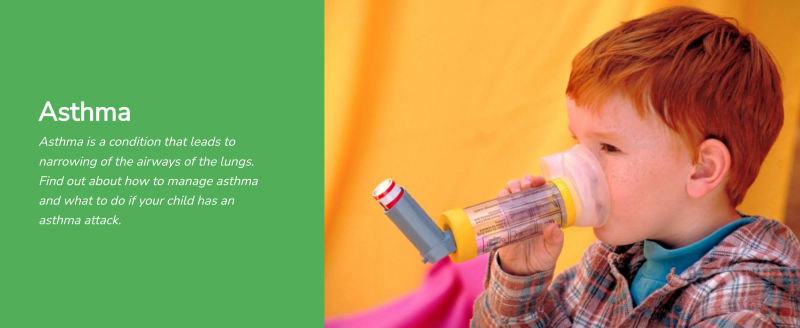Spacers For Asthma Inhalers
Spacers For Asthma Inhalers
A spacer is a clear plastic tube that helps deliver asthma medicine to the right place. Younger tamariki may need help to use a spacer, but as they grow older, they will be able to use a spacer themselves.
Key points about spacers
- your child needs to use a spacer with a metered dose inhaler (MDI)
- spacers help make sure asthma inhaler medicine gets into the lungs
- a spacer helps prevent the medicine from hitting the mouth and throat where it can cause side effects
What is a spacer?
A spacer is a clear plastic tube. The asthma inhaler fits in one end of the spacer, and at the other end is a mouthpiece. It's easier for tamariki 4 years and under to use a mask attached to their spacer. The medicine that is released into the spacer goes directly into your child's lungs when they breathe in through the spacer. Spacers help make sure the medicine gets to the right place.
Why does my child need to use a spacer with their inhaler?
Using a spacer helps direct the medicine into your child's lungs, where it can work best. If your child uses an inhaler without a spacer, very little medicine may actually get into the lungs.
Without a spacer, the medicine from the inhaler may just hit the back of your child's mouth and throat. A spacer helps prevent the medicine from sitting in the mouth and throat. This can cause side effects such as:
- sore throat
- hoarse voice
- fungal throat and mouth infections
Your child should still always rinse their mouth out after using preventer medicine to avoid these side effects.
How do you use an inhaler with a spacer?
The photographs below show 6 steps for using an MDI with a spacer. Younger tamariki will need help to follow the steps. As tamariki get older, they will be able to use the spacer themselves.
These photos and instructions are taken from the New Zealand Asthma and Respiratory Foundation's 'Managing your child's asthma' guide (PDF, 2.9MB).
Step 1
If using a mask, attach it to the spacer.

Step 2
Give the inhaler a good shake.
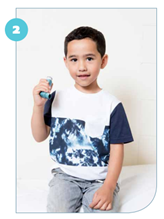
Step 3
Fit the inhaler into the opening at the end of the spacer.
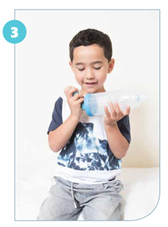
Step 4
Have your child seal their lips around the mouthpiece.
Or place the mask so it seals around their nose and mouth.
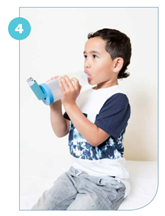
Step 5
Press the inhaler once only.
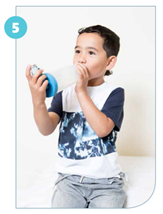
Step 6
Take 6 slow breaths through the mouth while holding the spacer in place.
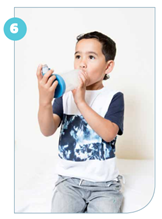
If your child needs more than one dose of medicine, wait one minute and then repeat steps 2 to 6 for further doses. Make sure that you shake the inhaler between doses.
You could also watch a video - Lachlan shows how to use an MDI inhaler with a spacer (Asthma Waikato video)
Should my child use a mask with the spacer?
A spacer with a mask can help young tamariki who have difficulty breathing properly with a regular spacer. If you use a mask and spacer for your child, make sure the mask covers their mouth and nose completely, without any openings. Masks are often used for babies and infants who can't close their lips around the spacer's mouthpiece. Most tamariki should be able to use a spacer without a mask by the time they are 4 years old. If you use a mask with preventor medicine, wash your child's face after each use.
How do I care for my child's spacer?
It is important to look after your child's spacer and inhaler. Wash the spacer once a week with a mild dishwashing detergent. Then leave it to air dry. This will stop the medicine from sticking to the spacer and blocking the valve at the mouthpiece. Your child needs a new spacer every year. You can get this at the same time as you see your doctor about your child's asthma action plan.
Where do I get a spacer from?
You can get a spacer for free from your GP or asthma educator. Your child needs a new spacer every year.
Find out about asthma medicines for children
See the KidsHealth page on asthma to learn more about the condition
See more KidsHealth content on asthma
This page last reviewed 26 June 2023.
Do you have any feedback for KidsHealth?
If you have any feedback about the KidsHealth website, or have a suggestion for new content, please get in touch with us.
Email us now